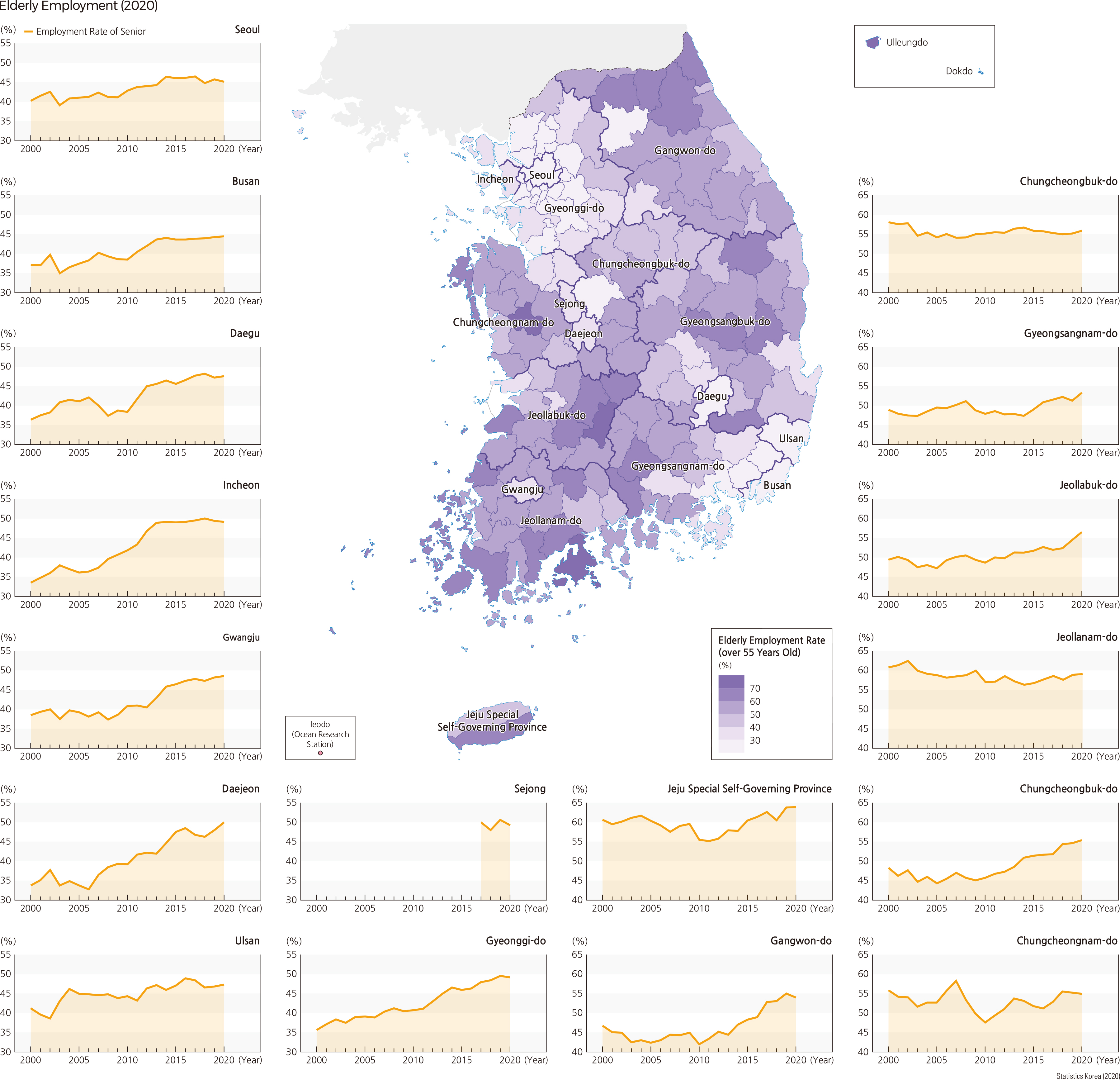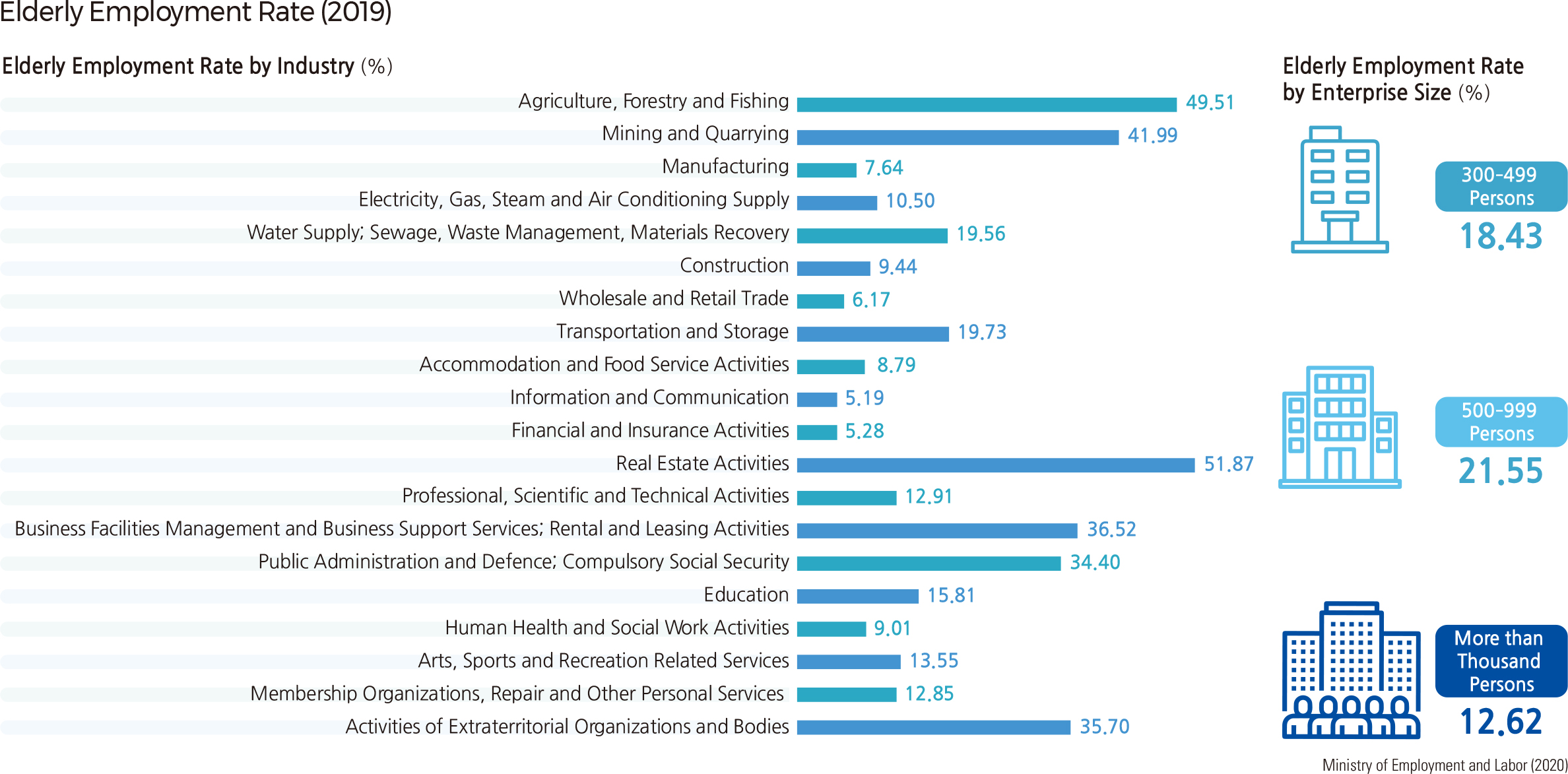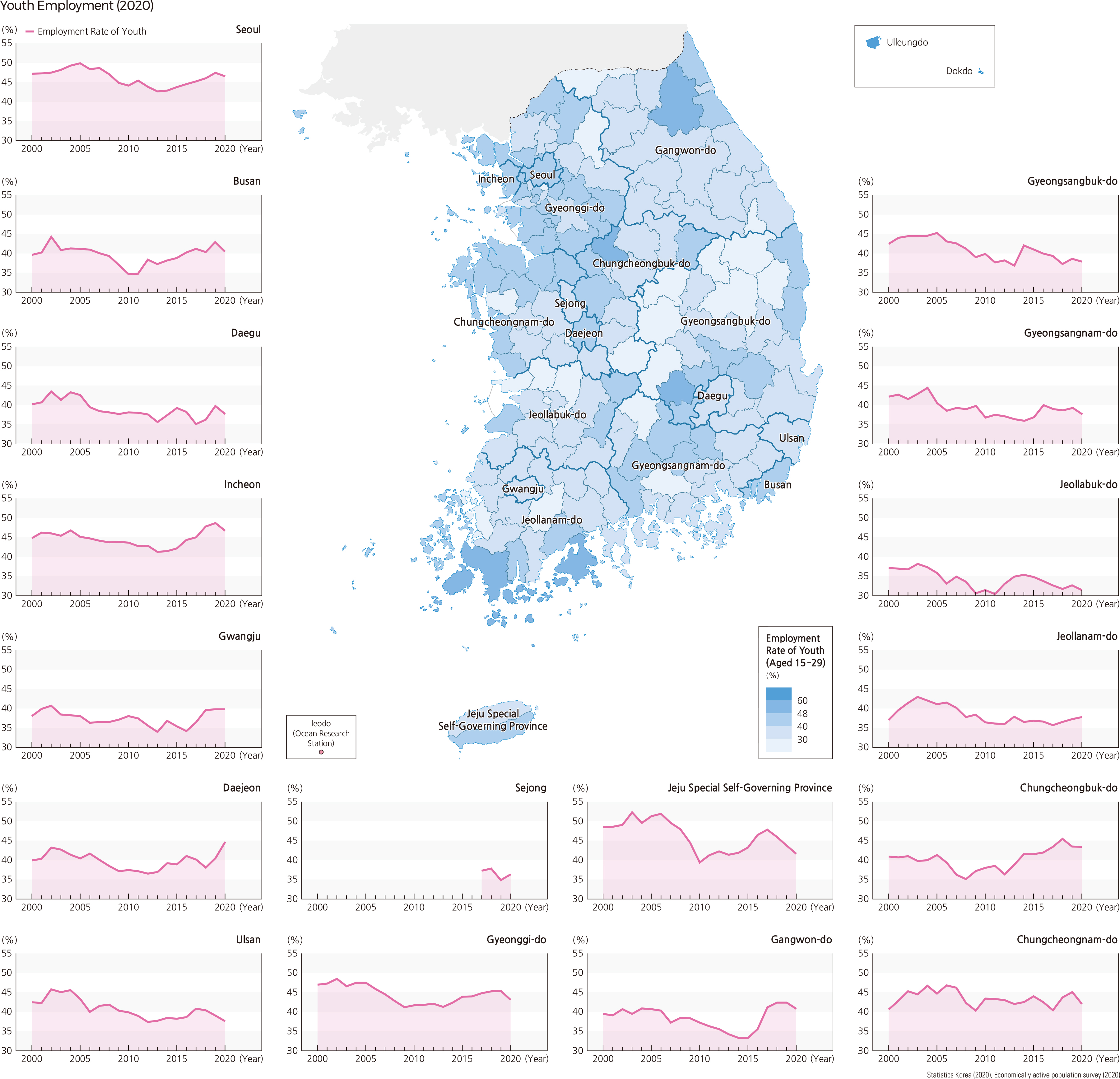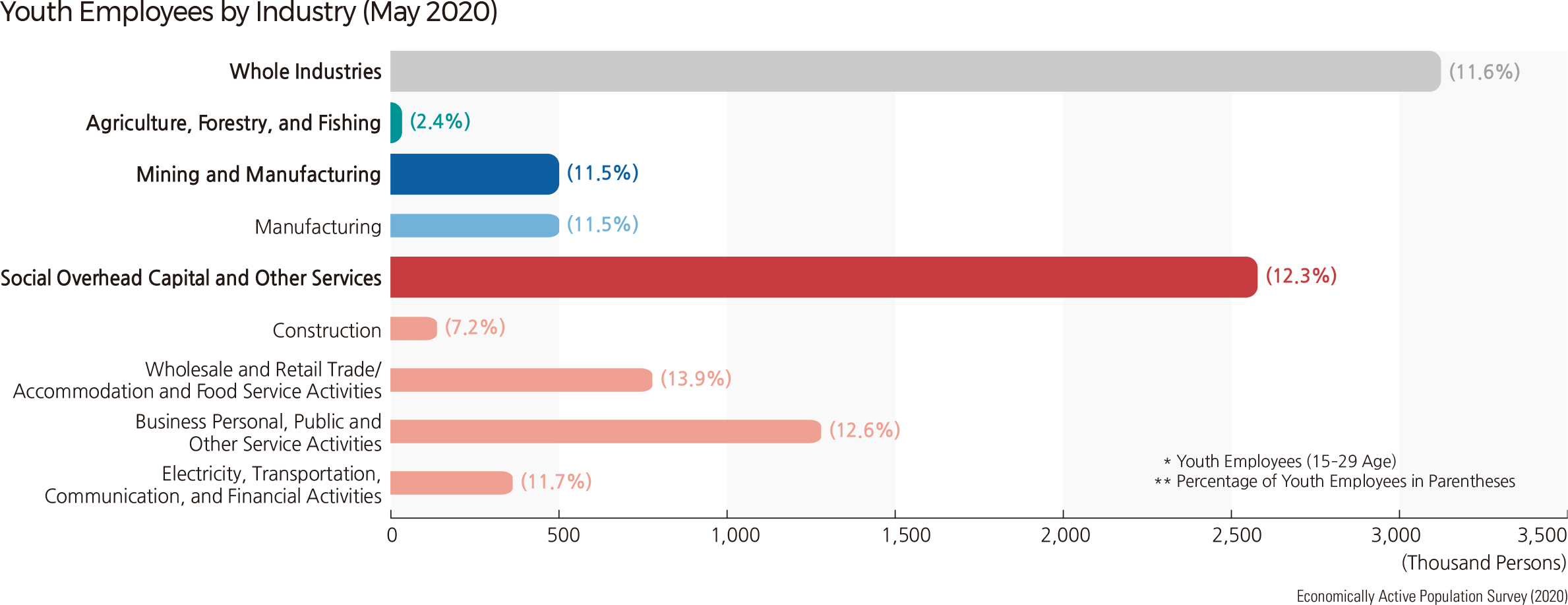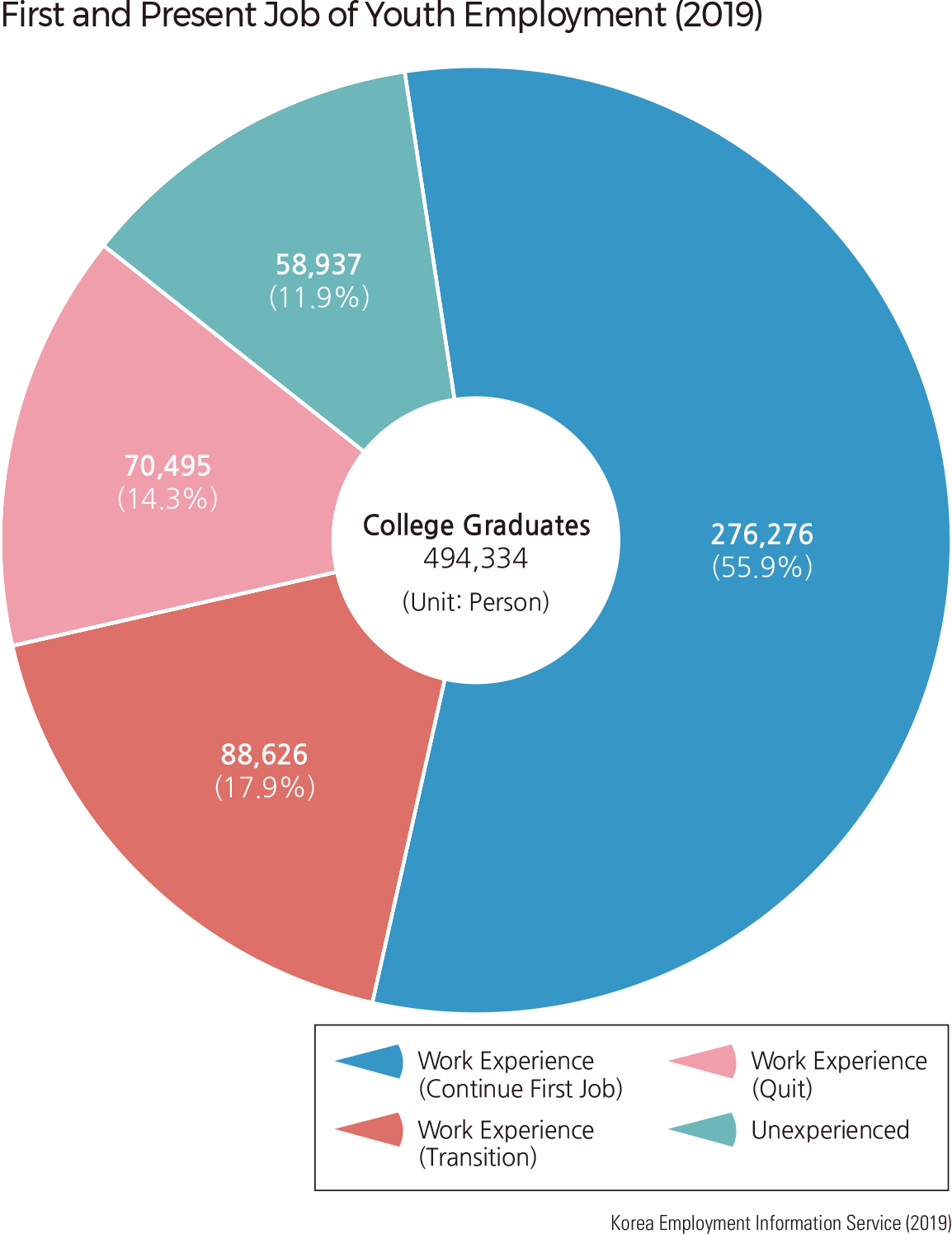English III 2021
The rapid aging of Korean society is being driven by the large-scale retirement of the postwar baby boomers (born between 1955 and 1963). As the economy grows stably, the general state of health has improved, and life expectancy has increased. Many elderly workers want to continue working to better prepare for old age as their life expectancy increases. The government provides education to improve job skills for the so-called young elderly (50–69 years old), helps searching jobs, and supports companies that hire them. Also, it supports retired professionals so that they can get re-employed or contribute to the local community by utilizing their experience and skills. In 2019, the number of employed young people (15–29 years old) was about 4.0 million, which is maintained despite the population size of that age group declining. The youth unemployment rate, on the other hand, was 8.9%, which was higher than the overall unemployment rate. It is necessary to pay attention because persistent high youth unemployment undermines growth potential both personally and nationally. Youth unemployment is the result of various structural factors. First, economic growth slowed due to a presumed shrinkage in domestic consumption caused by a low birth rate and an aging population. Second, retirement decreased due to the extension of the retirement age. Third, job creation power fell due to the spread of online businesses and unmanned stores. In addition, when the eco-generation, the children of the baby boomers, became young people, the labor supply increased. These generations have a higher college entrance rate than in the past, and competition for high-quality jobs is fierce. To increase the youth employment rate, the Korean government not only encourages companies to hire young people but also helps job-seeking young people more easily obtain job information in Korea and abroad, develop job skills, gain job experience, and further encourage them to work long-term after employment by implementing various youth employment-related policies.
|
